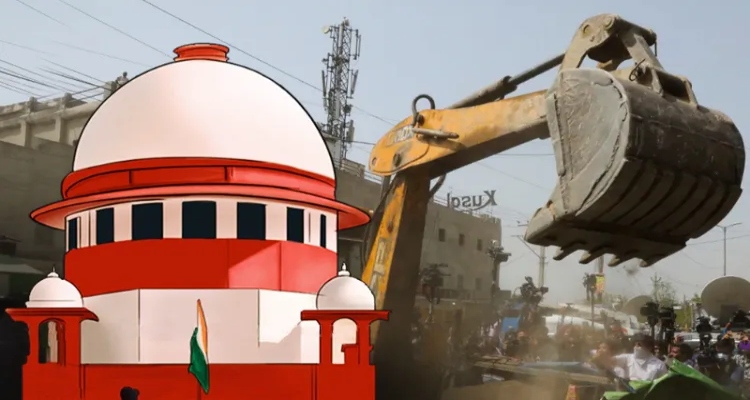
The Supreme Court on Wednesday issued strict guidelines aimed at ending “bulldozer justice” by prohibiting executive bodies from acting as both judge and enforcer when it comes to demolishing property linked to accused individuals.
Emphasizing due process, the Court ruled that authorities can’t unilaterally declare someone guilty or demolish their property without proper procedure.
A key element of the ruling mandates a 15-day prior notice for any demolition, which must be sent by registered post to the property owner and posted visibly on the building itself. This notice should detail the nature of the violation, the specifics of any unauthorized construction, and the grounds for demolition.
Furthermore, the entire demolition process must be documented on video, and any breach of these guidelines could result in contempt charges. This landmark judgment was delivered by a bench comprising Justices BR Gavai and KV Vishwanathan.
The Court underscored that no state official or agency has the right to impose arbitrary or excessive measures without following established legal procedures. Highlighting the constitutional protections that safeguard individuals from arbitrary state actions, the judgment reinforced the principle that only the judiciary is empowered to perform adjudicatory functions. It reaffirmed the doctrine of separation of powers, stressing that the executive branch cannot overstep its role by assuming judicial functions.
In cases where the executive arbitrarily demolishes a person’s property solely on the basis of an accusation, the Court warned that such actions violate fundamental legal principles. The justices held that public officials who take the law into their own hands must be held accountable to prevent any abuse of power.
The Supreme Court’s ruling also addressed the broader issue of state-led demolition drives, which were recently challenged in court by various petitioners. On October 1, the Court had previously issued an interim order temporarily halting demolitions nationwide, with the exception of unauthorized constructions on public roads or footpaths.
However, this interim protection was limited and did not apply to illegal structures occupying public spaces.
One of the petitions brought before the Court highlighted the troubling trend of unlawful demolitions, arguing that extra-legal actions are increasingly being used as a punitive measure, disproportionately affecting marginalized and minority communities.
According to the petitioners, this practice of demolishing properties without due process is creating a dangerous precedent and turning what should be rare exceptions into routine responses to criminal accusations.
The petitioners asked the Court to ensure that no property of an accused individual, whether residential or commercial, be demolished as a form of extra-legal punishment. They called for strict adherence to the rule of law in all demolition activities and demanded accountability for officials who bypass legal procedures.
By establishing these guidelines, the Supreme Court has set a precedent to protect citizens from excessive state action, insisting that all demolitions must be carried out with transparency, accountability, and respect for due process.
SC Lays Down Guidelines To Curb ‘Bulldozer Justice,’ Reinforces Separation Of Powers




